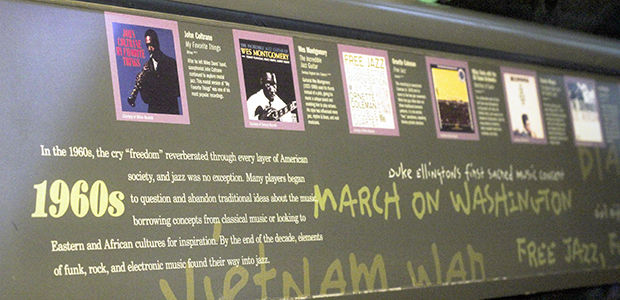Our Opinion: In today’s America, black history matters
Every day is a celebration of black history at the corner of 18th and Vine in Kansas City, Mo. A display at the American Jazz Museum there highlights achievements of black musicians during the turbulent decade of the 1960s. The museum complex also includes the Negro Leagues Baseball Museum and the Blue Room, a working jazz club.
Missouri Southern is located in Joplin, where famous black figures were born and have birthed ideas that have left a stamp on this community and the country.
That’s why it’s especially ironic that Missouri Southern has failed to recognize Black History Month this year, since our area is home to landmark African-Americans like Langston Hughes, George Washington Carver, and Gordon Parks.
Hughes, born in Joplin in 1902, was an African-American poet and novelist who found his niche as part of the Harlem Renaissance in the 1920s and 30s.
His words found new resonance in the last couple of years as the Black Lives Matter movement gained force. A 2014 visit to Ferguson, Mo., led the poet Claudine Rankin to invoke his iconic poem “Let America be America Again.” An article in The New Yorker called his work “an anthem for a split nation.”
Hughes, in the 1938 poem, wrote, “O, let my land be a land where Liberty/Is crowned with no false patriotic wreath,/But opportunity is real, and life is free,/Equality is in the air we breathe.//(There’s never been equality for me,/Nor freedom in this “homeland of the free.”) “
In nearby Diamond, Mo., George Washington Carver National Monument recognizes the scientist’s achievements as an educator, inventor and humanitarian.
Parks, born in 1912 just across the border in Fort Scott, Kan., is recognized as a pioneering black filmmaker and a prominent photojournalist in the 1940s through 1970s.
They are only a few of the men and women of color who helped make Joplin history happen. The background of Joplin has helped shaped Southern, but the campus is slacking when it comes to this profound commemoration.
People must remember Black History Month isn’t just for black students. Black history is American history. It’s everyone’s history.
Your donation will support the student journalists of Missouri Southern State University. Your contribution will allow us to purchase equipment and cover our annual website hosting costs.



















